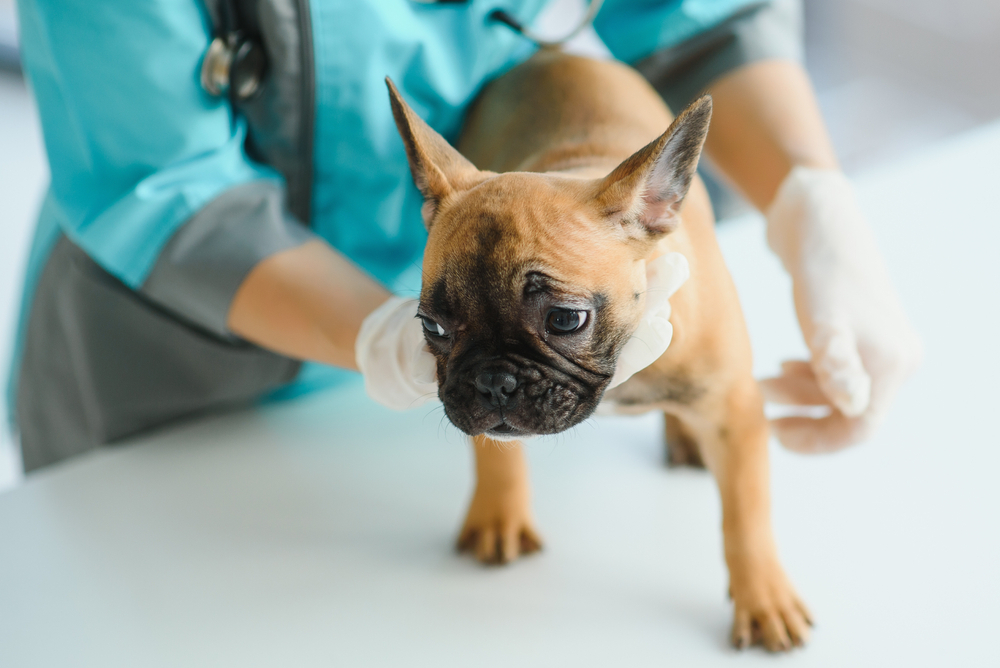What Is IVDD in French Bulldogs?
Intervertebral disc disease (IVDD) is an unfortunate reality faced by many French Bulldog owners.
While this condition can be difficult to manage, it is important to understand what it is and how it affects your pet so that you can provide them with the best possible care.
In this article, we will explore what IVDD is, its causes and symptoms, how it is diagnosed and treated, prevention strategies, common misconceptions, and how to cope with a diagnosis of IVDD in your beloved pet.
What Is IVDD in French Bulldogs?
Contents
- 1 What Is IVDD in French Bulldogs?
- 2 Symptoms Of IVDD In French Bulldogs
- 3 Diagnosing IVDD In French Bulldogs
- 4 Treating IVDD In French Bulldogs
- 5 Prevention Strategies For IVDD In French Bulldogs
- 6 Common Misconceptions About IVDD In French Bulldogs
- 7 Coping With A Diagnosis Of IVDD In French Bulldogs
- 8 Conclusion
IVDD is a congenital disorder that affects the spinal cord and is most common in French Bulldogs.
It occurs when the discs between the vertebrae become damaged or degenerate, causing pain, paralysis, and even death in severe cases.
There is no known cure for IVDD, but treatments are available to help manage the disorder.
These include physical therapy, medications, and surgery. In some cases, a special diet may be recommended to help reduce inflammation and improve mobility.
Additionally, owners of French Bulldogs with IVDD should take extra care to avoid activities that could put their pup at risk for further injury or damage.
With proper care and management, many French Bulldogs with IVDD can lead happy, healthy lives.
Symptoms Of IVDD In French Bulldogs
The symptoms associated with intervertebral disc disease vary depending on which area of the spine is affected, but generally include:
- Pain when moving around or walking
- Difficulty walking
- Stiffness
- Lameness
- Trembling
- Paralysis
- Incontinence
- Loss of appetite
- Depression
- Difficulty breathing due to compression on the lungs or airway
If left untreated, these symptoms can worsen over time. So, it’s important to seek veterinary attention if you suspect that your dog may have this condition.
Diagnosing IVDD In French Bulldogs
To diagnose intervertebral disc disease in your pet, your veterinarian will likely perform X-rays or an MRI scan as well as other tests such as blood work or urine analysis, depending on what other conditions may be present.
Once diagnosed with this condition, you must follow any treatment plan prescribed by your vet closely to ensure that your pet receives optimal care for its specific needs.
Treating IVDD In French Bulldogs
Treating IVDD in French Bulldogs can be a challenging task, but with the right approach, you can help your pup live a long and healthy life.
The first step is to identify the cause of the IVDD. This can be done through an MRI or CT scan.
Once the cause is identified, your vet can recommend the best course of action. This may include medications to reduce inflammation, physical therapy, and/or surgery.
If surgery is necessary, it is important to follow your vet’s instructions carefully to ensure a successful outcome.
In addition to medical treatments, proper diet and exercise are essential for keeping your French Bulldog healthy and strong.
Make sure to feed them a balanced diet that is low in fat and high in protein and vitamins. Exercise should include daily walks and playtime to keep their muscles strong and flexible.
With the right combination of medical treatments, proper diet, and exercise, you can help your pup live a long and healthy life with IVDD.
Prevention Strategies For IVDD In French Bulldogs
Prevention strategies for IVDD in French bulldogs are essential for maintaining the health of these beloved pets.
The most important thing to do is to ensure that your French bulldog maintains a healthy weight. Overweight dogs are more prone to developing IVDD.
So, it’s important to keep your pup’s diet in check and make sure they get plenty of exercise.
Additionally, providing your dog with a comfortable bed or cushion can help reduce the strain on its spine and joints.
It’s also important to provide them with regular checkups and vaccinations to ensure their overall health.
Finally, it’s important to be aware of any signs of pain or discomfort that your dog may be exhibiting, as this could be an indication of IVDD.
If you notice any changes in your pup’s behavior, it’s best to take them to the vet right away for a full examination.
With these prevention strategies in place, you can be sure that your French bulldog will stay healthy and happy for many years to come.
Common Misconceptions About IVDD In French Bulldogs
There are many misconceptions surrounding intervertebral disc disease, which can make understanding this condition more difficult than it needs to be.
Some people mistakenly believe that only older dogs are affected by this condition, when any dog of any age can develop problems due to genetic predisposition, diet, lifestyle factors, trauma, and so on.
Additionally, some people think that all breeds are equally prone when certain breeds like Dachshunds, Corgis, Shih Tzus, Basset Hounds, Beagles, Pugs, Chihuahuas, etc.
are more likely than others due to genetic predisposition.
Coping With A Diagnosis Of IVDD In French Bulldogs
If you have been given a diagnosis of intervertebral disc disease in your beloved pet, then know that you are not alone.
It’s important during this time that you focus on providing them with love, support, comfort, stability, safety, and security while following any treatment plan prescribed by their veterinarian closely.
Additionally, seeking out additional resources and support from other owners who have gone through similar experiences may also help provide both emotional and practical support during this challenging time.
Also Read: What is the Best Way to Help Your French Bulldog with IVDD?
Conclusion
IVDD is a congenital disorder that affects the spinal cord and is most common in French Bulldogs.
Unfortunately, there is no known cure for IVDD, but treatments are available to help manage the disorder.
If you own a French Bulldog, it is important to be aware of the signs of IVDD and to seek veterinary care if any symptoms are present.
With proper management and care, French Bulldogs with IVDD can still lead happy and healthy lives.




